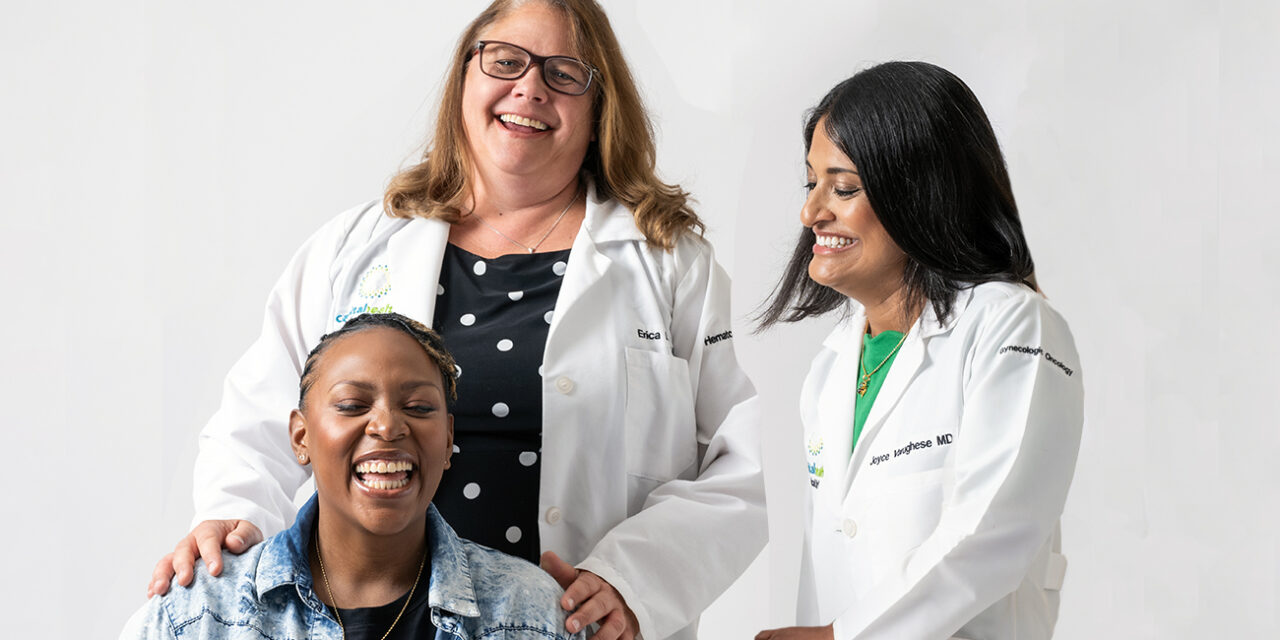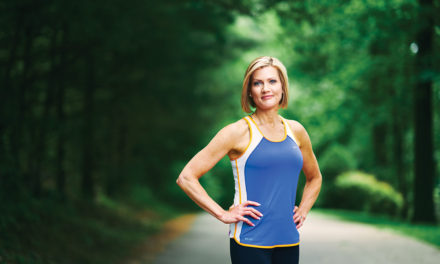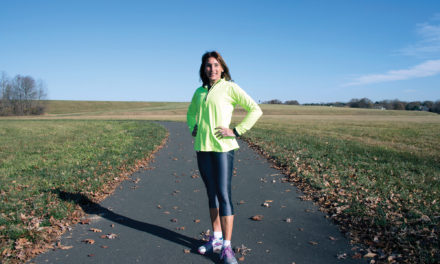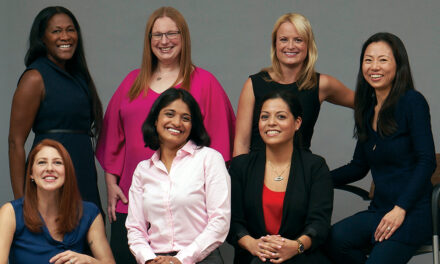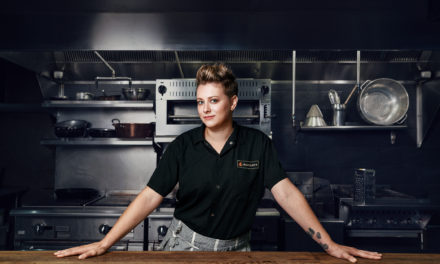It started with the discovery of a lump almost 8 years ago. Since then, I faced two different kinds of cancer, a hysterectomy, premature menopause, and homelessness. But with the relentless support of my Capital Health medical team and a fighting spirit, I’m still smiling.
If there is one thing I’ve learned from this entire journey, it is that the only thing I can truly control is my happiness. If a tumor is going to grow, it’s going to grow, but the smile on my face is my own.
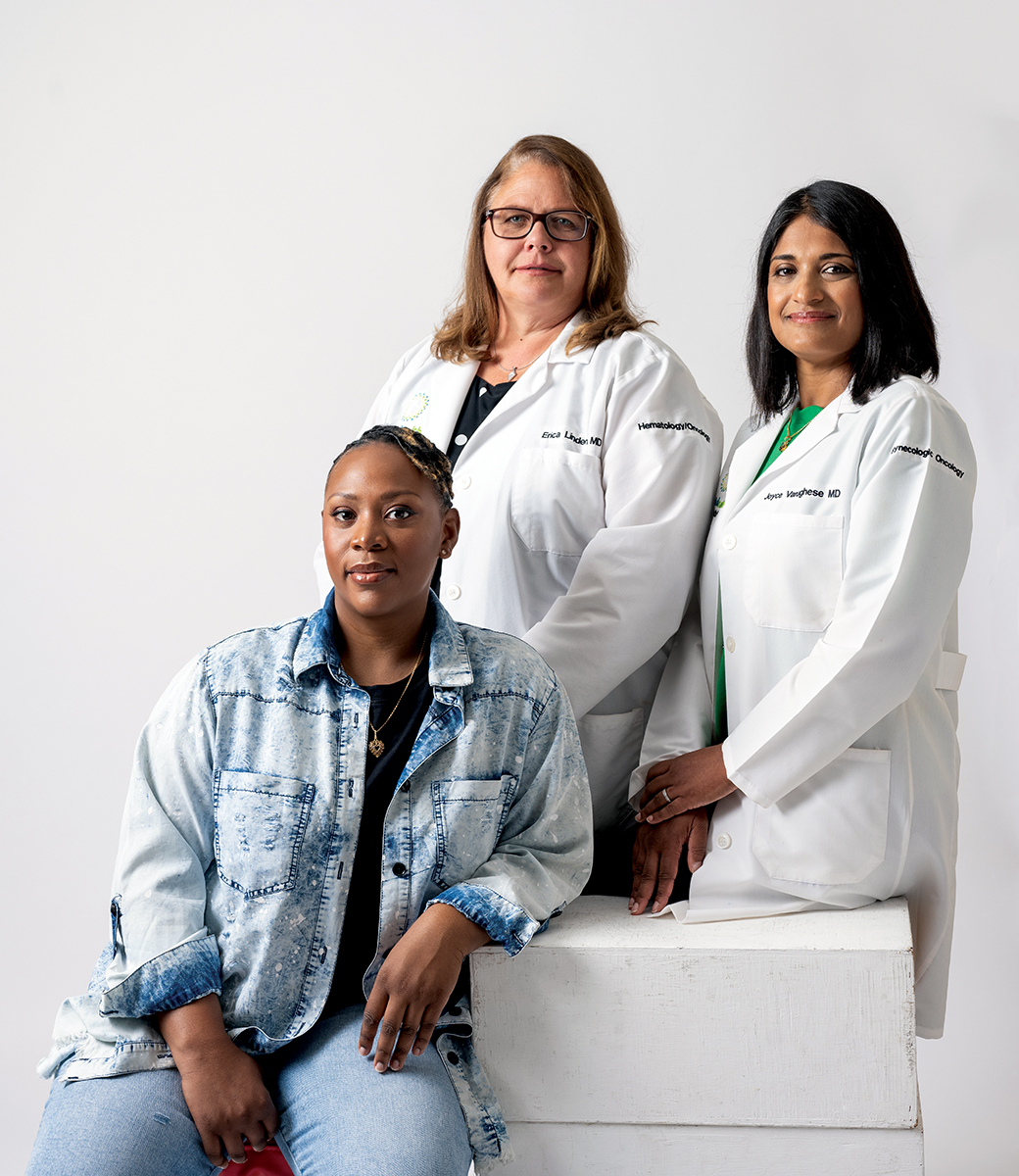
I was 22 the last time I wasn’t worried about cancer.
I was working with individuals with mental disabilities at the time, and I had just been promoted to supervisor. I was doing CrossFit, hanging out with friends, and just being young. I came home from work one night and took a shower, and something inside me told me to do a breast exam. I did the right side, and everything was fine. Then I did the left, and that’s when I found a hard lump—it felt like a giant golf ball, but bigger. My blood went cold, and I started to cry because I immediately knew something was wrong.
But I was so young, and I didn’t have a family history of breast cancer, so I felt hopeful, which is exactly what my gynecologist said when she examined me a few days later. She told me, “Sometimes women get lumps that turn out to be benign cysts.” When I had a diagnostic ultrasound, the radiologist echoed her sentiment—yes, there’s something concerning there, but considering my age and lack of family history, he was hopeful.
Unfortunately, after the biopsy, the doctor called me with the worst possible news. I was still in bed, and he asked me what I was doing and if I was alone. He told me the test results came back and showed that I had triple negative breast cancer. I later found out that triple negative is a type of breast cancer that lacks estrogen, progesterone, and human epidermal growth factor receptor 2 (HER2) receptors. It’s considered more aggressive than other types of breast cancer because it tends to grow and spread faster and has a higher rate of recurrence.
When I told my mom, she just hugged me, and we cried.
The doctor offered a few different treatment plans, and I chose to have a left breast mastectomy instead of bilateral. That option allowed me to heal up and get started on the chemo faster. He introduced me to Erica Linden, MD, the medical director of Breast Oncology and Cancer Genetics at Capital Health, who has been quarterbacking my cancer treatments ever since.
After that surgery, I did about 10 rounds of chemo-therapy, which was hard on my body and gave me a terrible taste in my mouth, so I didn’t want to eat things I normally ate. But I was also on steroids, which caused me to gain weight. During that time, I gained 50 pounds, I lost my hair, and I stopped getting my period. I even broke out in hives at one point.
The Greatest Gift
Healing from that surgery was slow and painful—I couldn’t raise my left arm at all. I needed help showering and getting dressed. So I was on Disability, and my mom had to stop working to help me recover. So we eventually lost our home. We stayed with a friend for a while, but eventually that situation broke down, and my mom and I really didn’t know what we were going to do. I needed a second surgery, and the situation became dire.
I kept thinking, “I’m 22 years old. I’m watching all my friends going out and having a good time. Meanwhile I have breast cancer. I’m homeless, jumping from place to place, dealing with people saying they’re going to help, but then they don’t really help. I should be focused on healing, and not where I’m sleeping.”
My mom called one of my doctors, Matthew Lynch, MD, and let him know what was happening with us. They had no idea, and I think that’s because when I go to doctor’s appointments, I’m always smiling, but that’s just who I am. I spent 3 days in the at Capital Health Regional Medical Center in Trenton for treatment, and when I left, the medical team gave me an envelope with $400 and tons of gift cards.
That’s when we received a gift from a guardian angel. It was a three-bedroom house for my mom, my little brother, and me, fully furnished and stocked with everything we needed. All we needed to bring was our clothes. I still can’t believe it, and one of my greatest hopes in life is that I will one day be able to do something like that for someone else in their time of need.
From that moment, things got so much better: I had my second surgery. I focused on healing and getting us back on track financially. I started working again, and the next 3 years I truly thought I could put this all behind me. And that’s when I had a dream where I was in the infusion room getting treatments, and I just had the most terrible feeling.
A Second Fight
Three months after that dream, I started feeling sick. I felt full all the time. I was bloated, but I chalked it up to a bad menstrual cycle. Then I started bringing up my food—I could only keep down liquids or Ensure. I started developing a cough and terrible pain. By the time my brother brought me to the emergency room, my pain was at a 10, and I had to hold onto him to walk.
Eventually, I learned the pain was caused by a 26 cm tumor from the left ovary up my stomach. I just sobbed; I knew it was bad. Dr. Linden sat on the phone with me, just giving me encouragement. She told me about Joyce Varughese, MD, a gynecologic oncology surgeon at Capital Health. Dr. Varughese welcomed me with open arms, and we just clicked from the very first time we met. She explained that I would need surgery to have the tumor removed, but she took the time to ask me about my life and my needs. I was only 25, so she was going to do everything in her power to preserve my ability to have kids of my own one day. (Prior to starting chemo, I had seven eggs extracted, so I could still have the option of getting pregnant.)
When she removed the tumor a few weeks later, it was 7 pounds—the size a newborn. During the surgery, she needed to remove the left fallopian tube; the left ovary was removed as well. Dr. Linden and I started walking through my chemo plan: I was going on bleomycin, etoposide, and cisplatin, which were going to wipe me out. This time I lost tons of weight because I couldn’t really eat, and I lost all my hair. During that time, I woke up, went to chemo, came home and slept, and repeated it again the next day.
At one point, I almost passed out in the shower—I was so dizzy, and then everything went black. In the ER, doctors did an ultrasound of my heart and found a blood clot, which they treated with heparin. Christine Lotto, MD, was the vascular surgeon who helped me get through the blood clot, which was a very frightening situation. To make it worse, during that hospital stay, I learned I had another mass, this time 12 cm.
Dr. Varughese explained that I needed a hysterectomy because the mass was so big, and it was sitting on my intestines. In fact, they brought in Ashlee Godshalk Ruggles, MD, a colorectal surgeon. I was terrified because I didn’t want a colostomy bag, and I was heartbroken because I always imagined getting pregnant and giving birth to my own babies. And that’s where Capital Health saved my life
in another way—they cared about my spirit.
On my birthday, the nurses decorated my chair and made me feel like I was part of their family. Honestly, they took care of me like I was their own daughter.
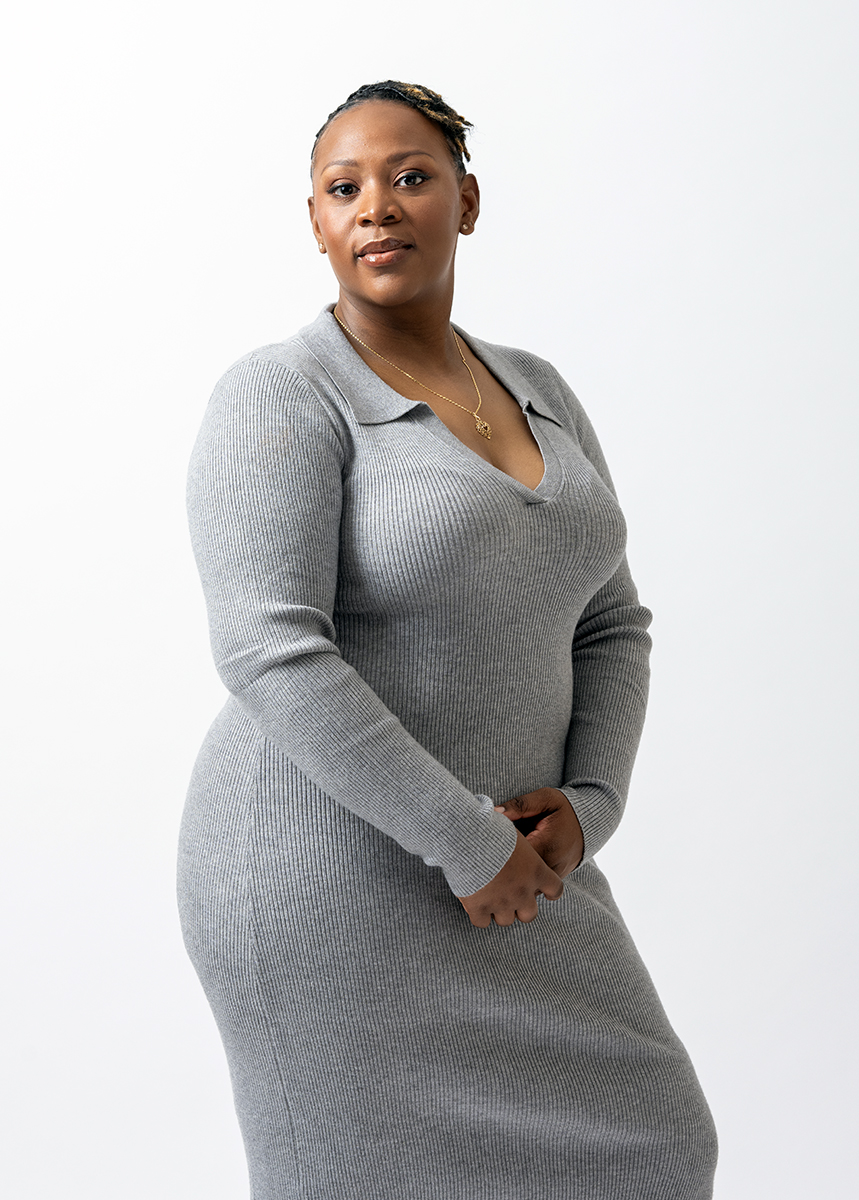

People say, ‘You’re cancer-free now.’ But although the cancer is not active right now, thats not how I think about it. Technically, I’m not free of cancer—it’s always in the back of my mind.
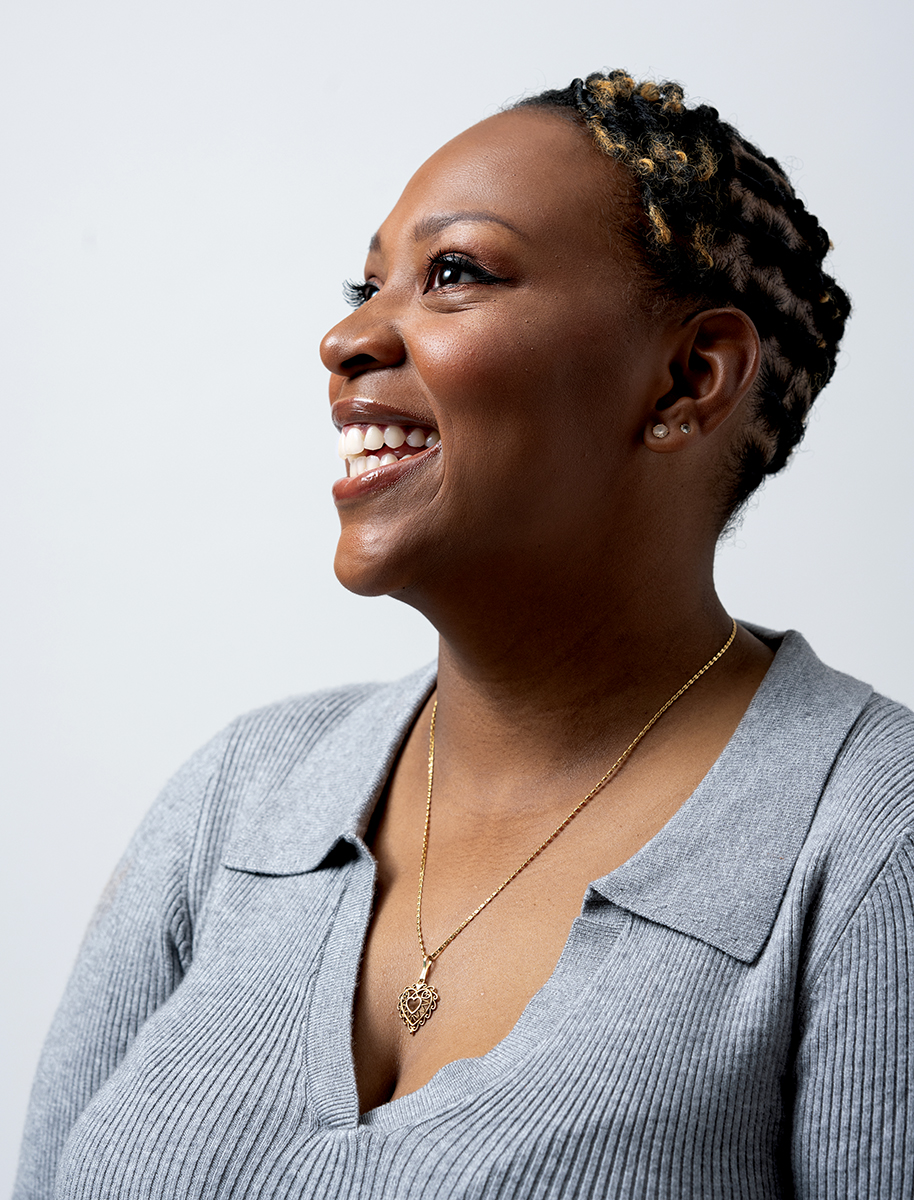
The Next Horizon
That bout with cancer didn’t end there. At one point, I ended up in the intensive care unit for 3 days because I got an infection that spiked my temperature to 104 degrees. But the long-term impact hit me the hardest. I came away from that battle forever changed. I can’t have children of my own. My body is different. I have a scar that runs down my abdomen. Sometimes I’m constipated. Other times I get gastroparesis. I’m in early menopause. I bruise easily. There’s vertigo. Clotting. Fear. I’m still getting used to my new normal.
It’s been 5 years since the ovarian cancer. People say, “You are cancer-free now.” But although the cancer is not active, that’s not how I think about it. Technically, I’m not free of cancer—it’s always in the back of my mind. And the reality is that I’m always being monitored. The doctors watch lymph nodes on the right and left lungs as well as a lesion on my liver. I get blood work every 3 months and scanned every 4 months. But if there is one thing I’ve learned from this entire journey to save my life it’s that the only thing I can truly control is my happiness. If a tumor is going to grow, it’s going to grow, but the smile on my face is my own.
During my ovarian cancer battle, I started to realize I wanted to be a nurse. I finished the first step toward that goal last October when I went through the Emergency Medical Training program at Capital Health and became an official EMT. Now I’m doing my prerequisites at Mercer County Community College to get into the nursing program. I was invited to a golf outing recently in which Capital Health President and CEO Al Maghazehe told me that Capital Health would cover all the prerequisites and the supplies I need. It was an amazing feeling because I know that one day I’m going to be able to give back to other patients what Capital Health has given me. Yes, they gave me the best care and helped me survive these huge medical challenges. But they also treated me like family, and that’s been the greatest blessing of my life.

